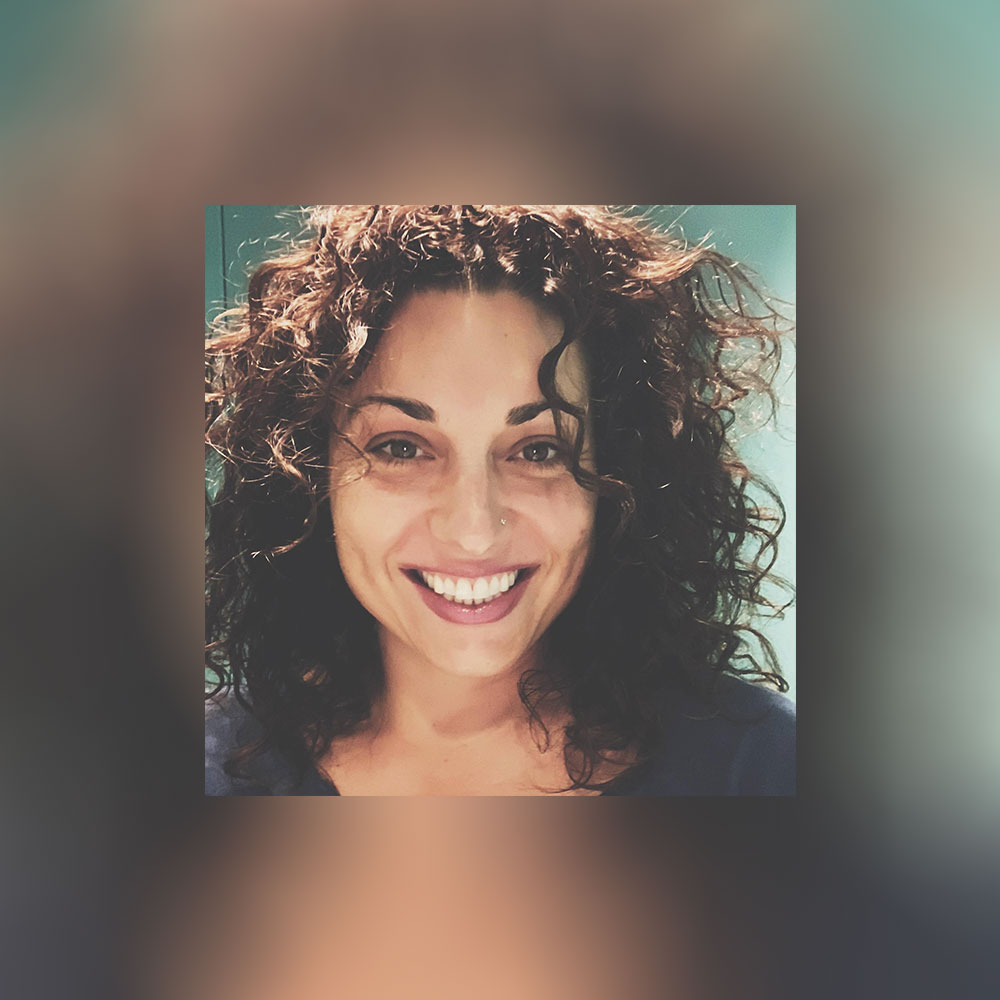
22 Feb Guest Interview: Lisa Marie Evans
To celebrate our 30th Mardi Gras Film Festival we sit down with Lisa Marie Evans to discuss their film In Her Words: 20th Century Lesbian Fiction, which screened in MGFF23. Hear what they have to say about their film, their favourite on-screen LGBTIQ+ kiss and the importance of queer films in cinema and LGBTIQ+ storytelling.
Name: Lisa Marie Evans
Pronouns: she/her
Social handles: Instagram | Facebook (Film) | Instagram (Film)
Queer Screen: Tell us why everyone needs to buy a ticket to see your film.
Lisa Marie Evans: Well, if you do, buckle-up because it is a journey through 20th century lesbian fiction. We have the Queen of Lesbian Pulp, Ann Bannon, reminiscing about writing Beebo Brinker while married with two kids in the 50s. Dorothy Allison and Ellen Hart have contagious laughs. Sarah Waters talks about the deliciousness of lesbian sex. We learn how the Black Arts Movement inspired Jewelle Gomez. Australia’s own, Claire McNab, is clever and inspiring even as she struggles to speak due to Parkinson’s. All the while, our narrator and LGBT historian Lillian Faderman, provides us with a rich historical background. Buying one ticket will buy you a wealth of knowledge and a good time.
What was the appeal of your film as a project? Why this film?
After Nancy Garden passed away, authors Marianne K. Martin and Sandra Moran understood the need to document the lives and stories of lesbian authors. They created an historical outline with key authors and intended to make a documentary. Soon after, Sandra was diagnosed with cancer and passed away within 4 weeks at the age of 46.
Marianne and Cheryl Pletcher, Sandra’s widow, decided to continue the project for Sandra. They needed a filmmaker and we were introduced through mutual friends. They told me their story and we began filming our first interview with Lee Lynch one month later at a Golden Crown Literary Society (GCLS) conference.
What do you hope audiences take from your film?
I hope audiences leave with an appreciation for lesbian authors who paved the way before us. I hope they leave with a better understanding of how key world events shaped LGBTIQ+ culture. I’d like for audiences to leave with a desire to read, write, support, and revel in all the lesbian (and LGBTIQ+) fiction they can dream of.
There are more channels for LGBTIQ+ films than ever before, why are queer film festivals like ours still important?
These festivals are truly magical. There’s this amazing energy that surrounds us when we’re together celebrating our lives and sharing our stories. I’m so excited to be a part of the conversation and to connect with the community.
Why is it important to keep telling LGBTIQ+ stories?
Our stories have often been hidden or rewritten to exclude the LGBTIQ+ version. We have beautiful stories to tell and the world needs to hear them. If we don’t, who will? Our voice is our power and together we’re stronger.
What was the first film you saw yourself represented in?
The first film I remember seeing myself represented in was Bar Girls when I rented the VHS tape. I was home from college and watched it at my parents’ house when they were away. I actually feel sad now that I think about it because I realise all the years I struggled with identity and the lack of lesbian or LGBTIQ+ representation I had in my surroundings. I’m so thankful for the bravery of those before me who fought, and continue to fight, to put our stories and lives on screen and in literature.
What’s one of your favourite LGBTIQ+ films and why do you love it?
It’s so hard to pick one. I love all things Pedro Almodovar. Call Me By Your Name is a beautiful film. Carol, based on Patricia Highsmith’s The Price of Salt, is romantic and heart wrenching. Ammonite and Blue is the Warmest Colour have these raw and intense sex scenes that are so well done. See why it’s so hard to pick just one?
Is there a dream LGBTIQ+ figure or topic that you wish you could tackle in another documentary?
Stay tuned.
What is one piece of career advice that you would give your younger self when it comes to filmmaking?
I visited my first LGBTIQ+ archive while making this film, with many to follow. My first visit was to Lesbian Herstory Archives in New York, co-founded by Joan Nestle. I was elated to be among the richness of lesbian records, words, and remnants. I felt a kinship, and also felt a deep sorrow for having been deprived of this history in all my years of schooling. So, I would tell my younger self what I tell myself now, document your process and save materials for archival purposes. We need more records of our lives to empower ourselves and others.

